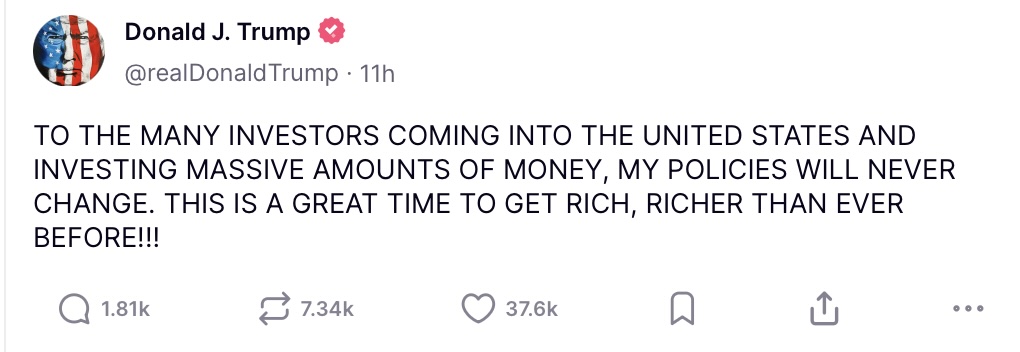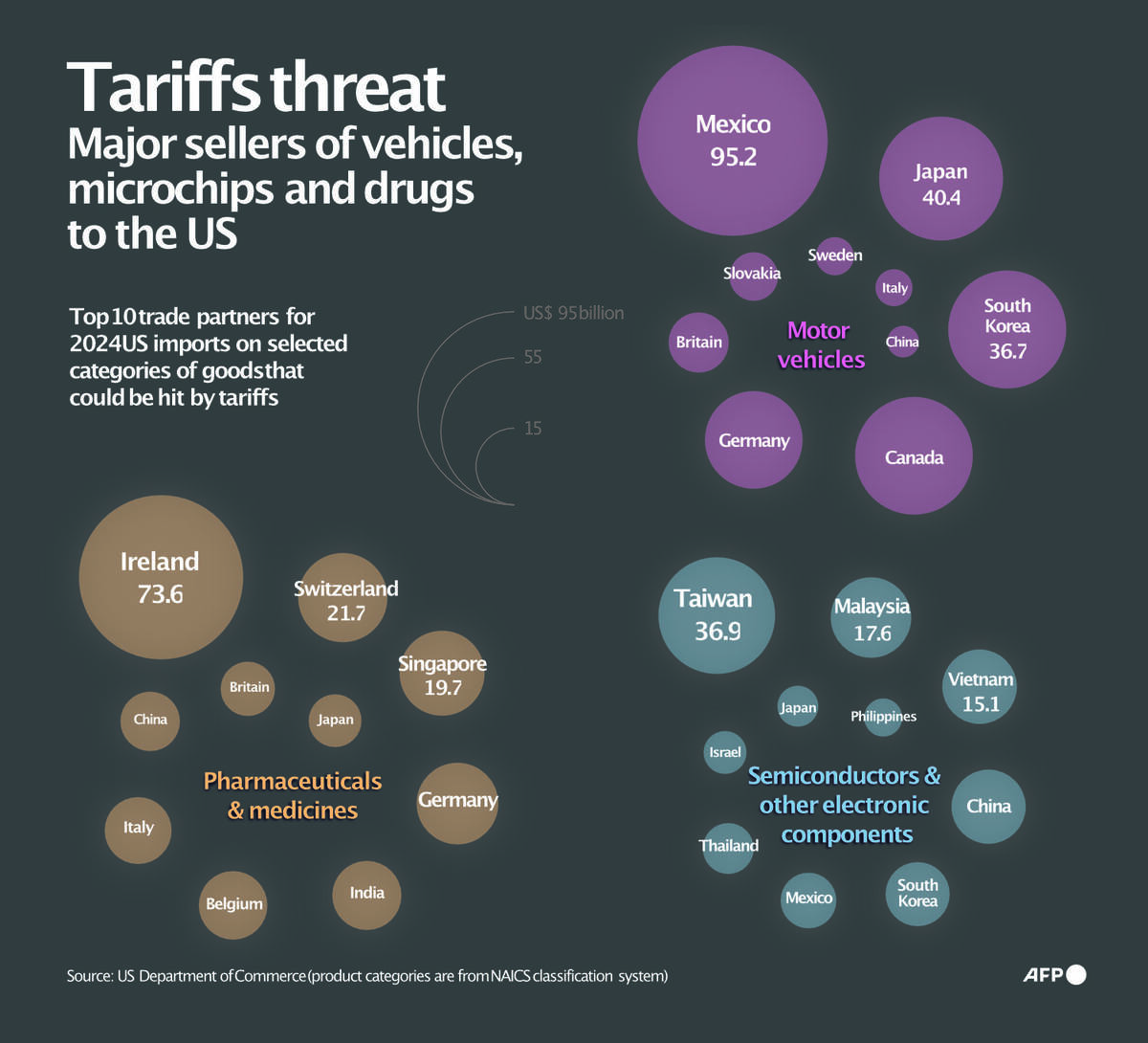TECOLUCA, El Salvador: US Homeland Security Secretary Kristi Noem on Wednesday visited the high-security El Salvador prison where Venezuelans who the Trump administration alleges are gang members have been held since their removal from the United States. The tour included two crowded cell blocks, the armory and an isolation unit.
Noem’s trip to the prison — where inmates are packed into cells and never allowed outside — comes as the Trump administration seeks to show it is deporting people it describes as the “worst of the worst.”
The Trump administration is arguing in federal court that it was justified in sending the Venezuelans to El Salvador, while activists say officials have sent them to a prison rife with human rights abuses while presenting little evidence that they were part of the Venezuelan Tren de Aragua gang.
Noem notably dodged questions by the press about if the Venezuelan deportees were going to be in the prison indefinitely and if the Venezuelans could ever be brought back to the US if a court orders the administration to do so.
“We’re going to let the courts play out,” she told reporters following the visit.
Noem toured an area holding some of the Venezuelans accused of being gang members. In the sweltering building, the men in white T-shirts and shorts stared silently from their cell, then were heard shouting an indiscernible chant when she left.
In a cell block holding Salvadoran prisoners, about a dozen were lined up by guards near the front of their cell and told to remove their T-shirts and face masks. The men were heavily tattooed, some bearing the letters MS, for the Mara Salvatrucha gang, on their chests.
After listening to Salvadoran officials, Noem turned her back to the cell and recorded a video message.
If an immigrant commits a crime, “this is one of the consequences you could face,” Noem said. “First of all, do not come to our country illegally. You will be removed and you will be prosecuted. But know that this facility is one of the tools in our toolkit that we will use if you commit crimes against the American people.”
Noem also met with El Salvador President Nayib Bukele, a populist who has gained right-wing admiration in the US due to his crackdown on the country’s gangs, despite the democratic and due process implications that have come with it.
“This unprecedented relationship we have with El Salvador is going to be a model for other countries on how they can work with America,” Noem said to reporters Wednesday.
Since taking office, Noem has frequently been front and center in efforts to highlight the immigration crackdown. She took part in immigration enforcement operations, rode horses with Border Patrol agents and was the face of a television campaign warning people in the country illegally to self-deport.
Noem’s Wednesday visit is part of a three-day trip. She’ll also travel to Colombia and Mexico.
The Venezuelans were removed from the US this month after Trump invoked the Alien Enemies Act of 1798 and said the US was being invaded by the Tren de Aragua gang. The Alien Enemies Act gives the president wartime powers and allows noncitizens to be deported without the opportunity to go before an immigration or federal court judge.
An appeals court Wednesday kept in place an order barring the administration from deporting more Venezuelan immigrants to El Salvador under the Alien Enemies Act.
A central outstanding question about the deportees’ status is when and how they could ever be released from the prison, called the Terrorism Confinement Center, as they are not serving sentences. They no longer appear in US Immigration and Customs Enforcement’s online detainee locator and have not appeared before a judge in El Salvador.
The Trump administration refers to them as the “worst of the worst” but hasn’t identified who was deported or provided evidence that they’re gang members.
Relatives of some of the deportees have categorically denied any gang affiliation. The Venezuelan government and a group called the Families of Immigrants Committee in Venezuela hired a lawyer to help free those held in El Salvador. A lawyer for the firm, which currently represents about 30 Venezuelans, said they aren’t gang members and have no criminal records.
The US government has acknowledged that many do not have such records.
Flights were in the air March 15 when a federal judge issued a verbal order temporarily barring the deportations and ordered planes to return to the US
The Trump administration has argued that the judge’s verbal directions did not count, that only his written order needed to be followed and that it couldn’t apply to flights that had already left the US
White House press secretary Karoline Leavitt told reporters that about 261 people were deported on the flights, including 137 under the Alien Enemies Act.
Bukele opened the prison in 2023 as he made the Central American country’s stark, harsh prisons a trademark of his fight against crime. The facility has eight sprawling pavilions and can hold up to 40,000 inmates. Each cell can fit 65 to 70 prisoners.
Prisoners can’t have visitors. There are no workshops or educational programs.
El Salvador hasn’t had diplomatic relations with Venezuela since 2019, so the Venezuelans imprisoned there do not have consular support from their government.
Video released by El Salvador’s government after the deportees’ arrival showed men exiting airplanes onto an airport tarmac lined by officers in riot gear. The men, who had their hands and ankles shackled, struggled to walk as officers pushed their heads down.
They were later shown at the prison kneeling on the ground as their heads were shaved before they changed into the prison’s all-white uniform — knee-length shorts, T-shirt, socks and rubber clogs — and placed in cells.
For three years, El Salvador has been operating under a state of emergency that suspends fundamental rights as Bukele wages an all-out assault on the country’s powerful street gangs. During that time, some 84,000 people have been arrested, accused of gang ties and jailed, often without due process.
Bukele offered to hold US deportees in the prison when US Secretary of State Marco Rubio visited in February.
At the prison Wednesday, El Salvador Justice Minister Gustavo Villatoro showed Noem a cell holding Salvadorans he said had been there since the prison opened. “No one expects that these people can go back to society and behave,” he said.
Homeland Security Secretary Noem visits El Salvador prison where deported Venezuelans are held
https://arab.news/5rwhy
Homeland Security Secretary Noem visits El Salvador prison where deported Venezuelans are held

- About a dozen prisoners were lined up by guards near the front of their cell and told to remove their T-shirts and face masks
- Kristi Noem: ‘Know that this facility is one of the tools in our toolkit that we will use if you commit crimes against the American people’































